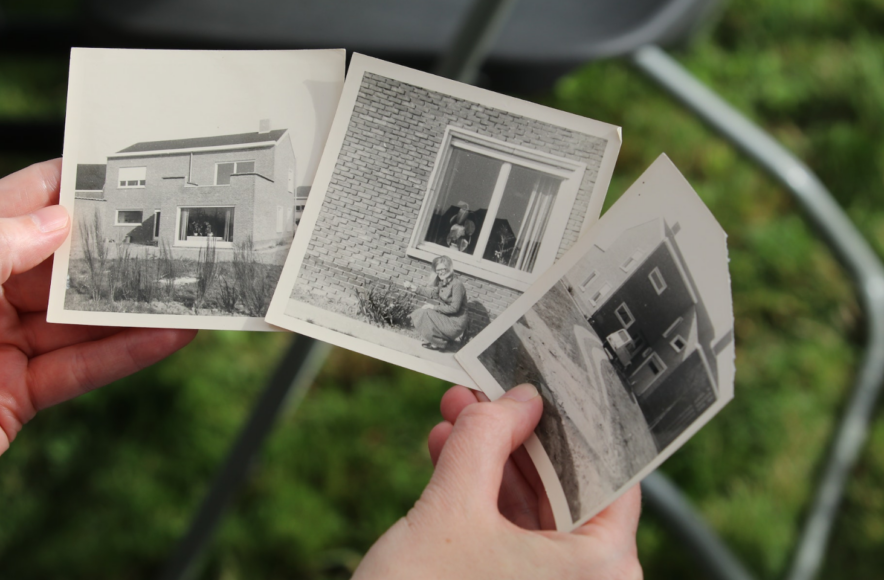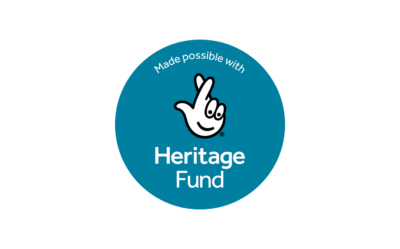Our Life Stories: documenting the voices and histories of people with learning disabilities and autism

I am grateful to have the opportunity to introduce myself in today’s blog. I started working for United Response in mid-November as the Project Coordinator for our oral history project, ‘Our Life Stories’. I have worked in a variety of jobs, supporting young people and adults with learning disabilities and autism in the community and education. My last role was working as a teacher, and whilst it was a little scary to change profession, it has been an exciting time to join United Response and I would like to share why it is important to me.
Amplifying disabled and autistic voices
Thursday 16 November to Saturday 16 December was UK Disability History Month.
Having easily accessible historical records with first-hand accounts and primary resources is seen as the norm for most of society. However, the recorded history of learning disability and autism is largely documented by others, such as medical professionals or policymakers, rather than being told from the perspective of people with learning disabilities or autism. (Tilley, Ledger and de Haas, 2020)
As Dorothy Atkinson explains in her book, ‘An Auto/Biographical Approach to Learning Disability Research‘:
The silence is pervasive. With little or no recourse to the written word, their voices were seldom heard. The consequence is that much lived history in the form of personal experiences of people with learning disabilities has gone unrecorded.
Historically, this silence has been a reflection of how people with learning disabilities and autism have been invisible within the wider heritage picture and marginalised within contemporary social and cultural life.
In October 2023 United Response celebrated its 50th anniversary. Within the last 50 years, there has been a huge change in the treatment of people with learning disabilities and autism. A move away from institutions and an increase in the availability of appropriate support within the community has changed the lives of many of the people we support.
But in 2023, things are still not where they should be.
The government’s National Disability Strategy, published in July 2021, was meant to set out its long-term vision to transform the everyday lives of disabled people. However, a recent report from a House of Commons cross-party committee of MPs described the strategy as a ‘list of uncoordinated and largely pre-existing short-term policies.’ Critically, disabled people and their representative organisations had little to no influence on the strategy. The report recommends that ‘As a priority, the government should work with disabled people to develop the strategy into a ten-year plan with clear targets along the way’.
It is clear from this that the voices of people with learning disabilities and autism are still not being heard for themselves as they should be. This is why I am so excited and passionate to be a part of the Our Life Stories project. Driven by Dr Maxine Spry, the project was granted funding by the National Lottery Heritage Fund and it is now starting to take form.
Our Life Stories
Our Life Stories is not just about gathering the life stories of people with learning disabilities and autism over the last 50 years. It is unique as an oral history project because it is driven by peer-to-peer participation, with people we support conducting the interviews and gathering the life stories of people with learning disabilities and autism.
We work together to remove the silence – to ensure that their voices are heard and recorded so that as we go forward in history, people we support have their first-hand accounts accessible for future generations. Documented by themselves – not by others – and reflecting the society we live in.
As well as conducting interviews, the project team will be editing content, cataloging archives (to be stored at the British Library), and helping to curate the exhibitions which will take place at the end of the project in late 2025.
There is so much to celebrate from the last 50 years and a lot to learn about where to go in the next 50.
It is a privilege to be able to work with amazing people and to be part of this historical project. I look forward to bringing you updates about what the team is up to as we progress over the coming months.
Charlotte Moore is Project Co-ordinator for United Response’s ‘Our Life Stories’ oral history project.
